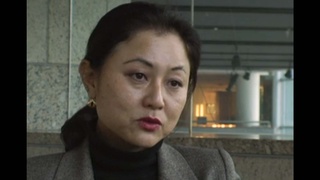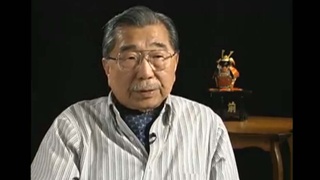Interviews
Role of the redress movement in helping Nisei to open up about their wartime experiences
When redress started, though, in the late '70s, or the idea started gaining momentum, then my parents started talking openly. I think, I mean, they talked very openly, they started talking more and more and more and more. And then when I got involved with Korematsu and the coram nobis cases with Hirabayashi and Yasui, too, my parents just would, you couldn't stop 'em after that. [Laughs]
I think they felt vindicated. At one point they felt, they realized—like a lotta Japanese Americans that I have talked to—once redress was either passed, not even passed, but when the movement went forward and they got used to the idea that, “Yeah, we were victims,” I saw a total loosening of the voices of Japanese Americans. They were able to speak again about the camps, and not in a—in a very, very strong way about how they felt. They were being, opened up about their feelings. They felt free to talk about one of the terrible things, some of the terrible things that happened to them.
Date: February 8, 2003
Location: Washington, US
Interviewer: Tom Ikeda, Margaret Chon
Contributed by: Denshō: The Japanese American Legacy Project.
Explore More Videos

Encountering a train full of Japanese Americans being transported to a concentration camp
(b. 1923) Chick sexer

Donating clothes to the Japanese interns (Japanese)
(1900–1996) The mother of Nikkei Brazilian immigration

Interrogation by police (Japanese)
(1900–1996) The mother of Nikkei Brazilian immigration

Concentration camp from a Japanese mother’s point of view (Japanese)
Shin-Issei from Gifu. Recently received U.S. citizenship

Sneaking out of the Hastings Park camp during World War II
(b. 1928) Doctor. Former Chair of the Japanese Canadian Redress Foundation.

Hiding out to avoid the concentration camps (Spanish)
(b. 1932-2016) Peruvian painter

Closing the Japanese school and deportation (Spanish)
(b. 1932-2016) Peruvian painter



A Dutiful Son
(1918-2012) Fought the constitutionality of Executive Order 9066.

Bypassing the Constitution
(1918-2012) Fought the constitutionality of Executive Order 9066.

The Perspective of Youth
(1923–2006) Community activist. Co-founded the Manzanar Committee

Changing Minds
(1923–2006) Community activist. Co-founded the Manzanar Committee

Prevailing Within the System
(1923–2006) Community activist. Co-founded the Manzanar Committee

Fighting For What’s Right
(1923–2006) Community activist. Co-founded the Manzanar Committee
